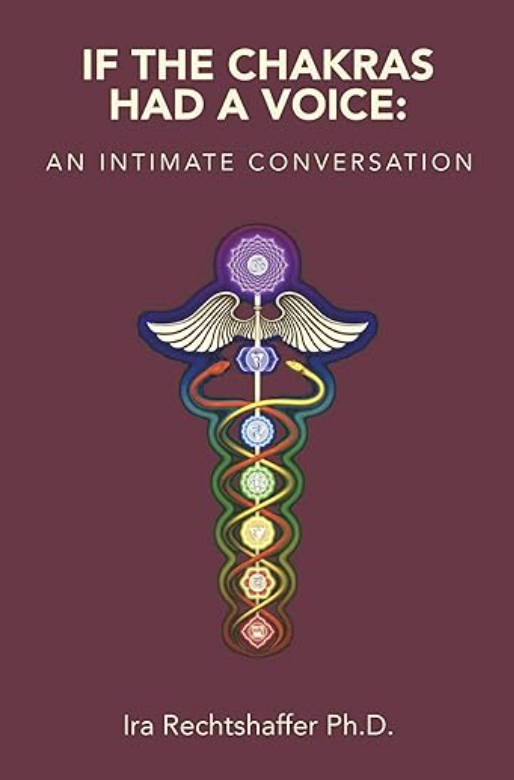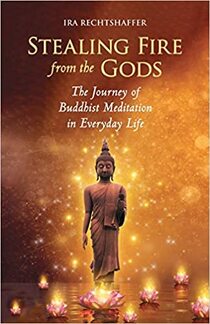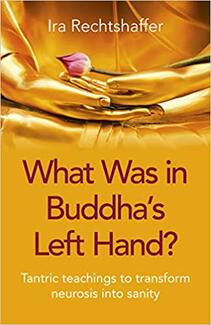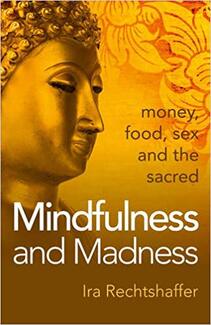Books & Articles
|
If the Chakras had a Voice:An Intimate Conversation
This highly original work breathes life into each of the seven chakras and creatively transforms them into living entities with whom we can engage in conversation. The chakra system is a map of personal transformation that can be used to discover how and where we get stuck in our development, and how we can liberate ourselves from these places so that our spiritual journey continues to evolve. Through dialogue with each of the chakras, you will learn how to befriend every part of yourself, even the shadowy parts, and cultivate your creativity, intuition, and deepen your awareness. This book invites you into a new and expanded perspective for how to understand and creatively work with your body, heart, and mind in order to become all that you can be.
Stealing Fire from the Gods:
The Journey of Buddhist Meditation in Everyday Life The Buddhist teachings go to the heart of what we want most—to meet the larger being that we are and to ignite the fire of our aliveness. Here we discover that the enlightened energy and intelligence that we’ve attributed to our gods, is the very same energy and intelligence that burns in each of our hearts. Stealing Fire from the Gods offers a fresh description of Buddhist meditation as an expression of our deepest spiritual longing. Meditation becomes the orientation we bring to our entire life. This very readable book integrates a deep understanding of Buddhist meditation with insights from Western psychology, and addresses both the powers and the potential blindspots of each tradition.
|
|
What Was in Buddha's Left Hand?:
Tantric Wisdom to Transform Neurosis to Sanity This book is about the Buddhist tantric teachings of the five elements—-earth, water, fire, wind, and space. These elements are living energies within each of us, and as we learn how to tune into them they become a system of personal transformation, guiding us how to integrate our many aspects so that we can become more authentic, more of who we really are.
|
|
Mindfulness and Madness: Money, Food, Sex and the Sacred
Mindfulness is when we give our full attention to what we rarely give a moment’s thought to--nowness, when all of us, mind and body, is brought to the present moment. Madness, on the other hand, is the state of mind that compulsively jumps from one thing to the next, hitchhiking between past and future, but rarely landing in the here and now. This book explains, in plain language, how we can bring the power of mindfulness into everyday life to restore our sanity.
|
Articles
Loving What's Wild
What is wildness, but our inability to control life’s unpredictable twists and turns, and so it is feared and resisted. But wildness serves our spiritual path because it exposes how tightly we hold onto ourselves, and to our notions of order and rationality. We might think that if we meditate forty minutes a day, take our vitamins, do yoga or tai chi, contribute to charity, eat vegetarian, and do no harm—even to insects—that somehow life will go smoothly for us. But life conspires against that idea. Read more...
Intimacy, Love and the Shadow of Desire
The Buddhist mandala (a symbol for wholeness) is composed of the five elements of earth, water, fire, wind, and space. These elements are wisdom energies that we all possess. They function like a Rosetta stone, helping us decipher the innumerable layers and aspects of ourselves and our interpersonal relationships. As we begin to tune into these elements, they unleash their power to animate and enliven our connection with others and with our everyday life, inspiring us to see, hear, and feel the world with refreshing openness. Read More...
Meditation as the Art of Everyday Life
We entered the world with a sense of the miraculous and with openness to raw experience. By the time we left childhood, we were taught to suppress the ordinary miracle of being. The problem is that the world is no longer enchanted for us as when we were children and ordinary things pulsated with life. Read More...
Spiritual Sobriety
We’re larger than our experience of suffering at any moment. Buddhism suggests that we are the space of awareness within which suffering is occurring and that our true dimensions extend beyond it. Read More...
Living in the Moment
Throughout the day there are continual moments of openness and possibility, but also uncertainty. For the meditator, the challenge is whether we are able to linger in the space of 'don't know' and trust what happens next...You could discover that you feel like crying with joy, or maybe hugging a tree, or biting into a Macintosh apple, and surprise yourself. Read More...
Samsara: The Difference Between Dogs and Lions
When you’re with a dog and you throw a stick, the dog will faithfully chase the stick. When you throw a stick before a lion, the lion will chase you not the stick. . . . Like dogs we have been faithfully chasing all the stuff that the mind throws at us. We need to look at the "thrower" of the sticks rather than the mind's productions. Read More...
Tender Courage
Mindfulness meditation suggests that it is refreshing to meet the nakedness of situations with your own nakedness, here and now. Outside of the immediacy of nowness we fail to genuinely appreciate our lives because we are struggling to survive in time, projecting ourselves into the future or attempting to resolve the past. Read More...
Shining a Light in the Darkness
There is a dark side of the mind that many spiritual practitioners unwittingly avoid... Meditation or prayer doesn't always shine a light into those areas because our "shadows" are heavily defended. Meditation may reveal the transparency of our ego, who we take ourselves to be, but that is only half the story. Read More...
Cultural Factors Shaping Buddha's Message
Every culture through which Buddhism radiated its wisdom shaped the Buddha's message to the mentality of its populace, and by doing so, offered novel and fresh opportunities for Buddha dharma to shine through. In the present cross fertilization of East and West, something very unique in the history of spirituality is being born. Read More...
Karma: Entrapment or Liberation
The Buddha taught that our thoughts manifest as words, and they in turn, manifest as behaviors, which develop into habits, and habits eventually harden into character or personality. We might add that character is destiny in that the compelling power of our habitual patterns shape our lives in conformity with who we take ourselves to be. Read More...
Even Yogis Get the Blues
Extending loving kindness to ourselves creates a fierce fire. As we open to our shadow aspects, the broken, wounded and inferior parts, we may experience shame and feel diminished. Yet, it is precisely these forgotten aspects of ourselves that cry out for our love so that we can be healed and whole. Read More...
Loving What's Wild
What is wildness, but our inability to control life’s unpredictable twists and turns, and so it is feared and resisted. But wildness serves our spiritual path because it exposes how tightly we hold onto ourselves, and to our notions of order and rationality. We might think that if we meditate forty minutes a day, take our vitamins, do yoga or tai chi, contribute to charity, eat vegetarian, and do no harm—even to insects—that somehow life will go smoothly for us. But life conspires against that idea. Read more...
Intimacy, Love and the Shadow of Desire
The Buddhist mandala (a symbol for wholeness) is composed of the five elements of earth, water, fire, wind, and space. These elements are wisdom energies that we all possess. They function like a Rosetta stone, helping us decipher the innumerable layers and aspects of ourselves and our interpersonal relationships. As we begin to tune into these elements, they unleash their power to animate and enliven our connection with others and with our everyday life, inspiring us to see, hear, and feel the world with refreshing openness. Read More...
Meditation as the Art of Everyday Life
We entered the world with a sense of the miraculous and with openness to raw experience. By the time we left childhood, we were taught to suppress the ordinary miracle of being. The problem is that the world is no longer enchanted for us as when we were children and ordinary things pulsated with life. Read More...
Spiritual Sobriety
We’re larger than our experience of suffering at any moment. Buddhism suggests that we are the space of awareness within which suffering is occurring and that our true dimensions extend beyond it. Read More...
Living in the Moment
Throughout the day there are continual moments of openness and possibility, but also uncertainty. For the meditator, the challenge is whether we are able to linger in the space of 'don't know' and trust what happens next...You could discover that you feel like crying with joy, or maybe hugging a tree, or biting into a Macintosh apple, and surprise yourself. Read More...
Samsara: The Difference Between Dogs and Lions
When you’re with a dog and you throw a stick, the dog will faithfully chase the stick. When you throw a stick before a lion, the lion will chase you not the stick. . . . Like dogs we have been faithfully chasing all the stuff that the mind throws at us. We need to look at the "thrower" of the sticks rather than the mind's productions. Read More...
Tender Courage
Mindfulness meditation suggests that it is refreshing to meet the nakedness of situations with your own nakedness, here and now. Outside of the immediacy of nowness we fail to genuinely appreciate our lives because we are struggling to survive in time, projecting ourselves into the future or attempting to resolve the past. Read More...
Shining a Light in the Darkness
There is a dark side of the mind that many spiritual practitioners unwittingly avoid... Meditation or prayer doesn't always shine a light into those areas because our "shadows" are heavily defended. Meditation may reveal the transparency of our ego, who we take ourselves to be, but that is only half the story. Read More...
Cultural Factors Shaping Buddha's Message
Every culture through which Buddhism radiated its wisdom shaped the Buddha's message to the mentality of its populace, and by doing so, offered novel and fresh opportunities for Buddha dharma to shine through. In the present cross fertilization of East and West, something very unique in the history of spirituality is being born. Read More...
Karma: Entrapment or Liberation
The Buddha taught that our thoughts manifest as words, and they in turn, manifest as behaviors, which develop into habits, and habits eventually harden into character or personality. We might add that character is destiny in that the compelling power of our habitual patterns shape our lives in conformity with who we take ourselves to be. Read More...
Even Yogis Get the Blues
Extending loving kindness to ourselves creates a fierce fire. As we open to our shadow aspects, the broken, wounded and inferior parts, we may experience shame and feel diminished. Yet, it is precisely these forgotten aspects of ourselves that cry out for our love so that we can be healed and whole. Read More...




